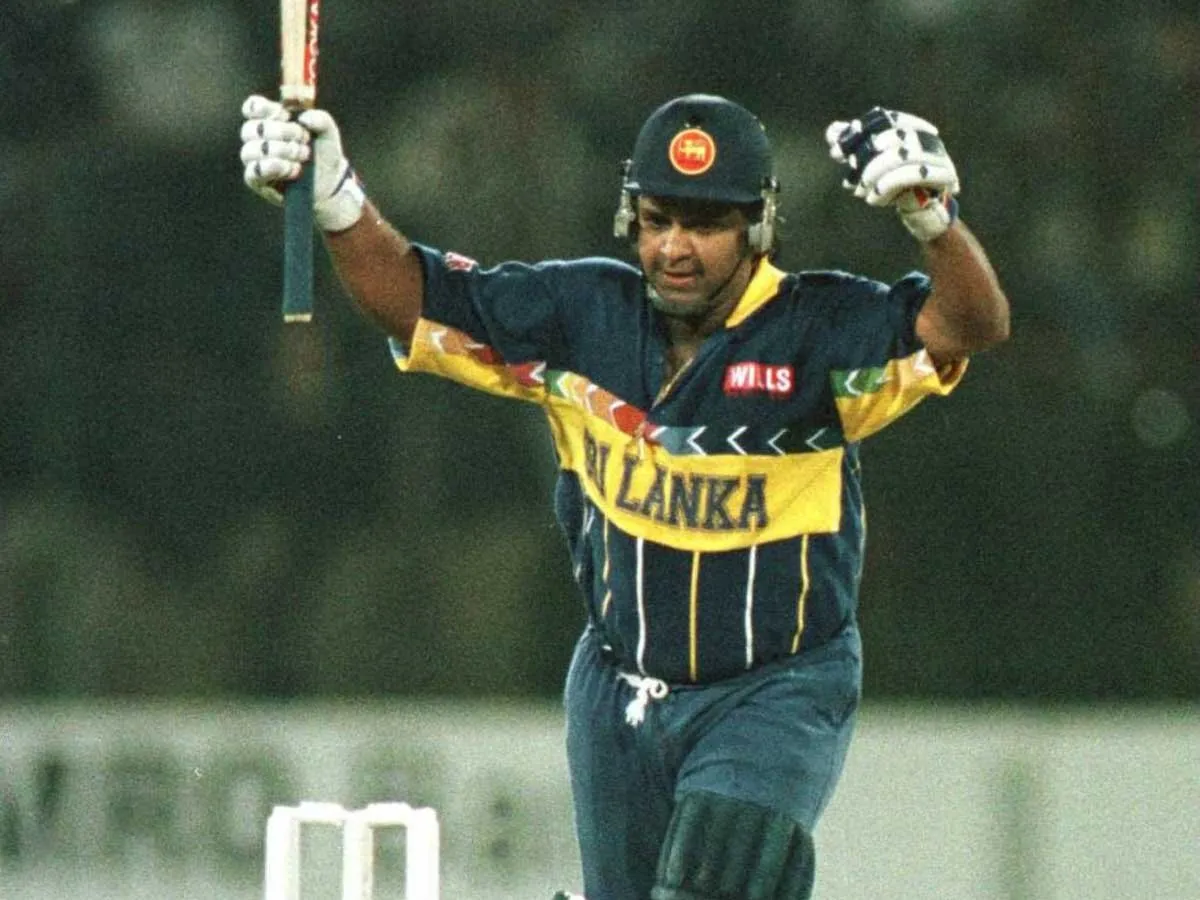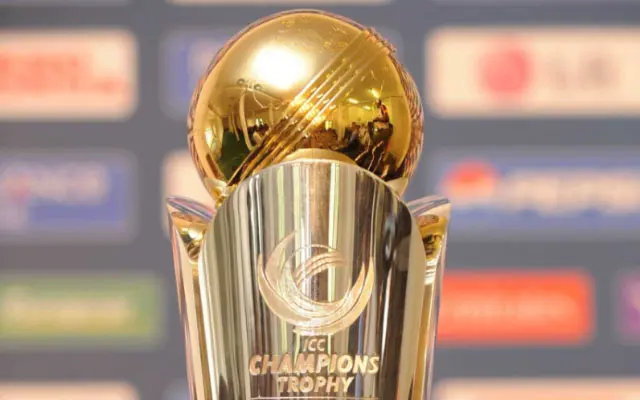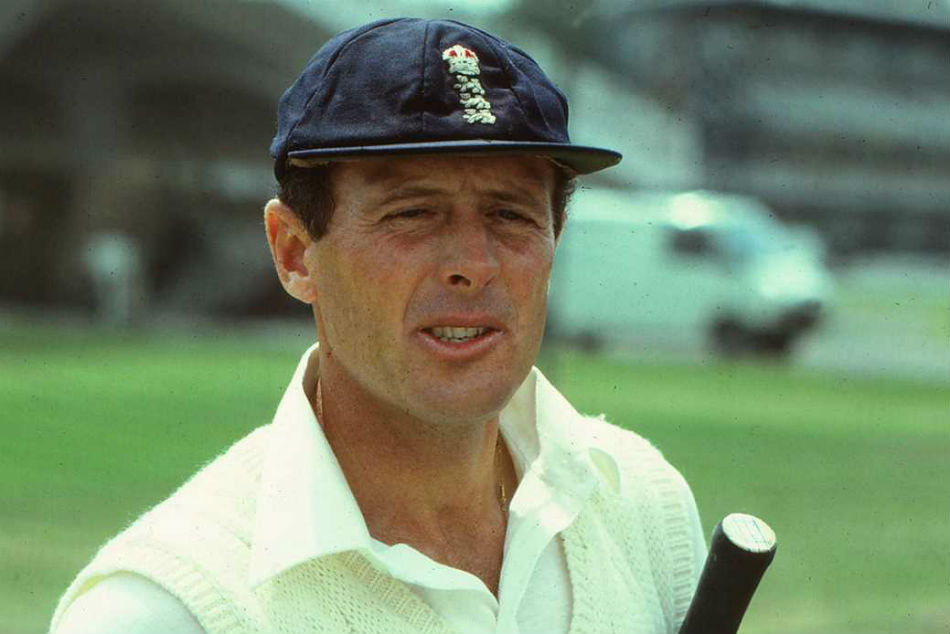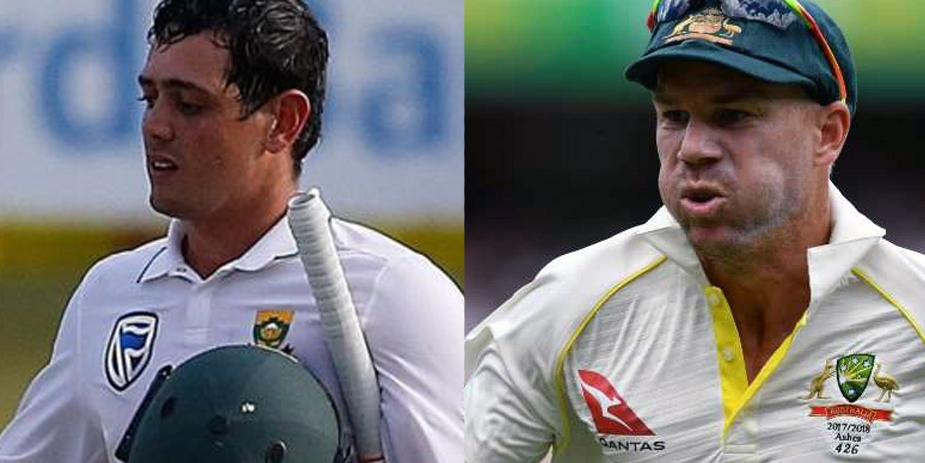Arjuna Ranatunga is probably the 2nd most popular Sri Lankan cricketer after Muralitharan. His contribution towards Sri Lankan cricket is enormous. He actually made them believe that they can compete with the best and win. Under Ranatunga, Sri Lanka reached great heights that they are now incapable of even competing against the best ones. The impact he had on the players was tremendous. He was a fighter to the core and he ensured that every member of his team fought until the match is either won or lost. Ranatunga may not have been an excellent batsman but he more than made it up with his captaincy skills by bringing the best out of several players. This is a tribute to Arjuna Ranatunga.
I am not taking away for a moment the contributions of Aravinda de Silva or Muralitharan or Jayasurya or a few others. All of them had their moments of glory and they helped the island nation to reach the pinnacle of the world in 1996. I am not belittling any of their contribution. I am of the firm belief that they were moulded and encouraged by Ranatunga and because of that, they managed the performances that they can feel proud of. His dream to build a hostel for the underprivileged out-station cricketers, the decentralisation of cricket by looking at players from the areas outside of Colombo – these are causes which found a champion in Ranatunga.
Ranatunga and the art of aggression
Ranatunga made his debut back in 1982 against England. Yes, they lost the Test easily but a plump 19-year old made not only his but the first 50 by a Sri Lankan in Test cricket. He didn’t set the records world alight but nevertheless, he was determined enough to make a mark for himself at the international stage. Until Ranatunga took charge at the helm, Sri Lanka was more or less a team that though has potential was not really tough. They were easily bullied and didn’t have the stomach to change the image about themselves. Ranatunga changed all of that. He fondly recalls that it was the Australians from whom he and his team learned sledging. Ofcourse, every team learns this stupid and illogical trait from Australia.
“When you travel to Australia they would be very tough, so we learnt from them,” said the 58-year-old. Unfortunately for Australia I used that in the 1996 World Cup final.”
The Muralitharan incident
This has been written in multiple media outlets to which I would be pleased to add my two cents. The combative nature of Ranatunga and his nature to support his players were on display in Australia. The Muthiah Muralitharan chucking incident. Darrell Hair had the courage to call a no-ball whenever Muralitharan bowled. I for the record have my doubts regarding Murali’s action but I am a nobody and hence it does not really matter. Darrell Hair repeated this several times in a tour game and continued to do so in the Test too.
He even called a no-ball when Murali bowled leg-spin. Now, that is impossible but it did not matter for him. This was when Ranatunga had enough and decided to take a stance. He refused to take the field until the issue is resolved. He took the players off the field. Only the timely intervention of the officials convinced him to continue. The footage from that incident revealed the steely nature of Ranatunga and the supreme confidence he had on his players.
New ball hitting
This wasn’t pioneered by Ranatunga or by Sri Lanka. Mark Greatbatch used this to great effect in the World Series ODI games in Australia when it was the only tournament where the 15 overs fielders restriction was followed. Ranatunga just took a leaf out of Greatbatch’s book. However, it will not be an understatement to say that he perfected it. He found a couple of players who are capable of achieving the desired result. Sanath Jayasurya, who was upto that point languishing in the lower order with his part time spin and part time batting, found a new lease of life as an opener. Thanks to Ranatunga and his unorthodox methods, his career took a new turn and Jayasurya found himself contributing significantly towards the success of the team.
World Cup 1996
His and Sri Lanka’s greatest moment in cricket came in the 1996 World Cup. They played a brand of cricket that was hitherto unseen at that moment. No, it wasn’t the all-out aggression by Jayasurya and Kaluwitharana at the top. It was the confidence to chase whatever score the opponent piles up. That confidence stemmed from the fact that they had a couple of dashers at the top and a brilliant accumulator in the middle in Aravinda with Ranatunga himself managing to finish most of the games. Until that point, teams winning the toss in a World Cup final, invariably wanted to bat first and post a huge enough score. Scoreboard pressure in a World Cup final is intangible.
Conventional wisdom dictates that when you win the toss, bat first. More so, in a final but Ranatunga decided to trust the capability of his team to chase down whatever Australia posts. Events in the end proved him correct. He himself was at the wicket to score the winning runs. A first ODI World Cup win will always be special and more so for a beleaguered nation like Sri Lanka.
Rift with Shane Warne
Ranatunga is on record calling Shane Warne just an ordinary bowler. However, when Warne passed away, he did not hold himself back and paid him full tribute.
Full statement by Arjuna Ranatunga:
I was deeply saddened to hear the sudden demise of one of the greatest cricketers the world has ever seen. As many people know, Shane and I had a very confrontational and competitive relationship on the field, but we also had immense mutual respect for each other. Shane’s passing is a major loss, not only for Australian cricket but also for the cricketing community around the world.
He had so much love and respect for the game of cricket, and the cricketing knowledge he had will be an immense loss. Shane’s achievements, both on and off the field, have been legendary, and the contributions he has made to the game of cricket will live on forever.
Our deepest sympathies to the Warne family. May he Rest In Peace.
Wrapping up a tribute to Arjuna Ranatunga
After retirement, Ranatunga plunged into politics and was the Minister of Transport and Civil Aviation in the Mahinda Rajapaksa-led government.
Other blogs about Sri Lanka
https://icricketcritique.com/whatever-has-happened-to-sri-lanka/
https://icricketcritique.com/what-is-the-point-of-west-indies-against-sri-lanka-series/
https://icricketcritique.com/something-is-wrong-with-sri-lankan-cricket/
https://icricketcritique.com/ranatungas-criticism-of-the-indian-team/



